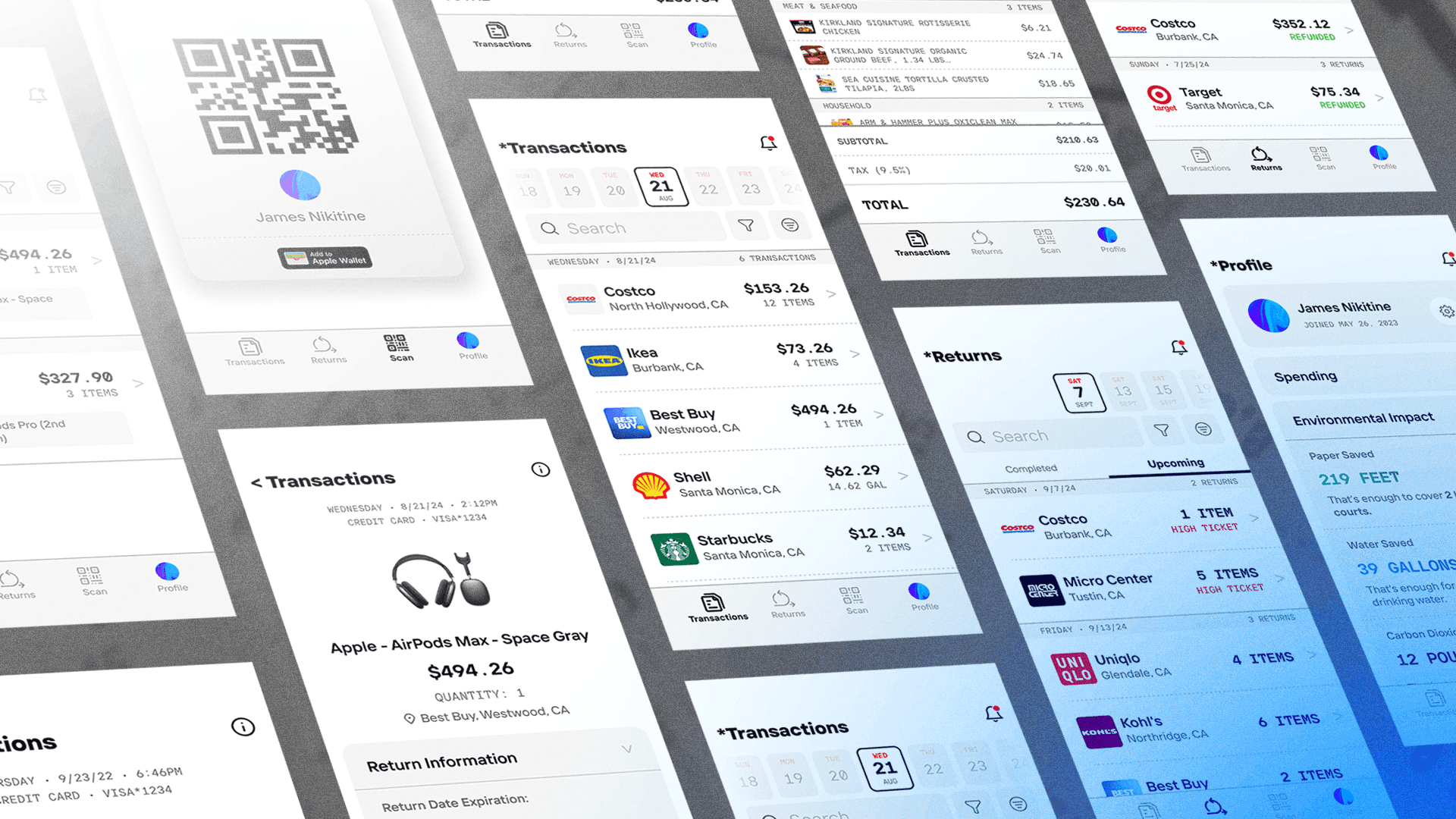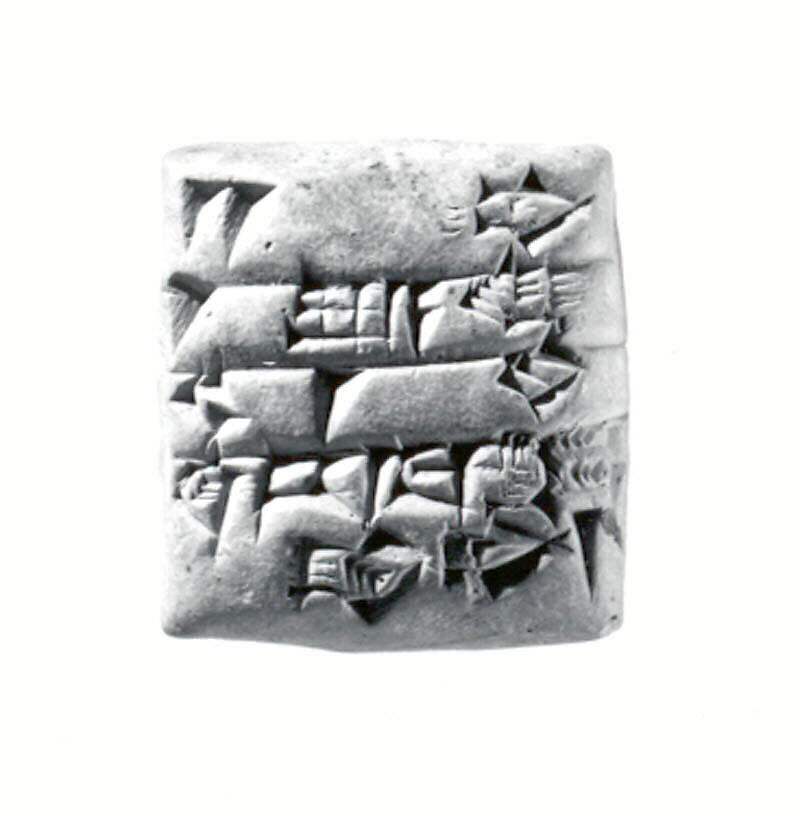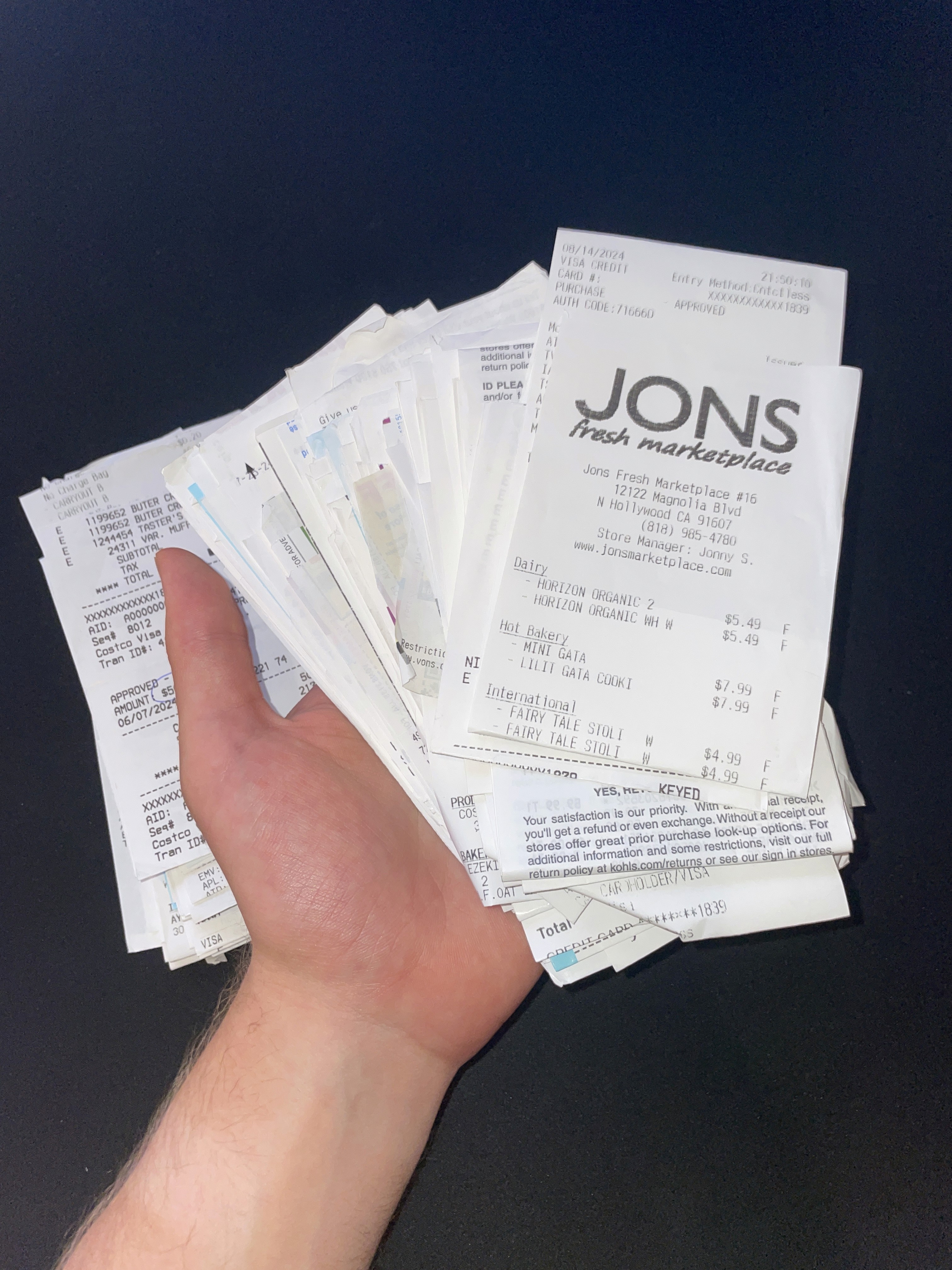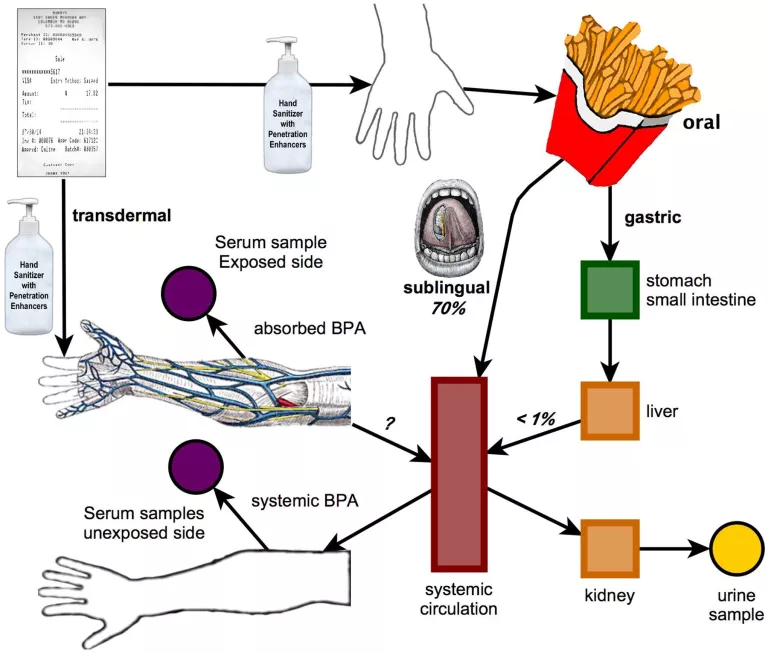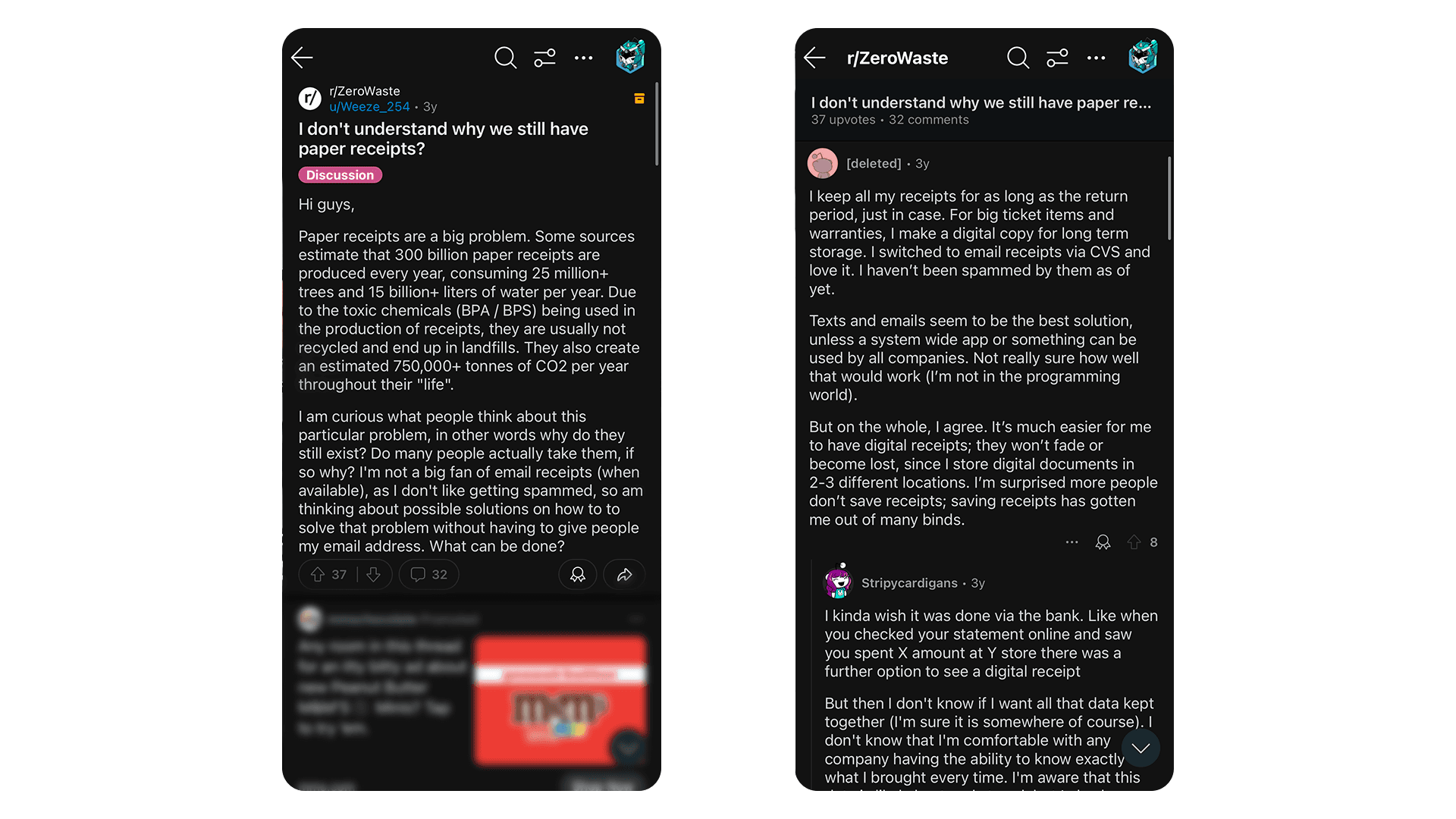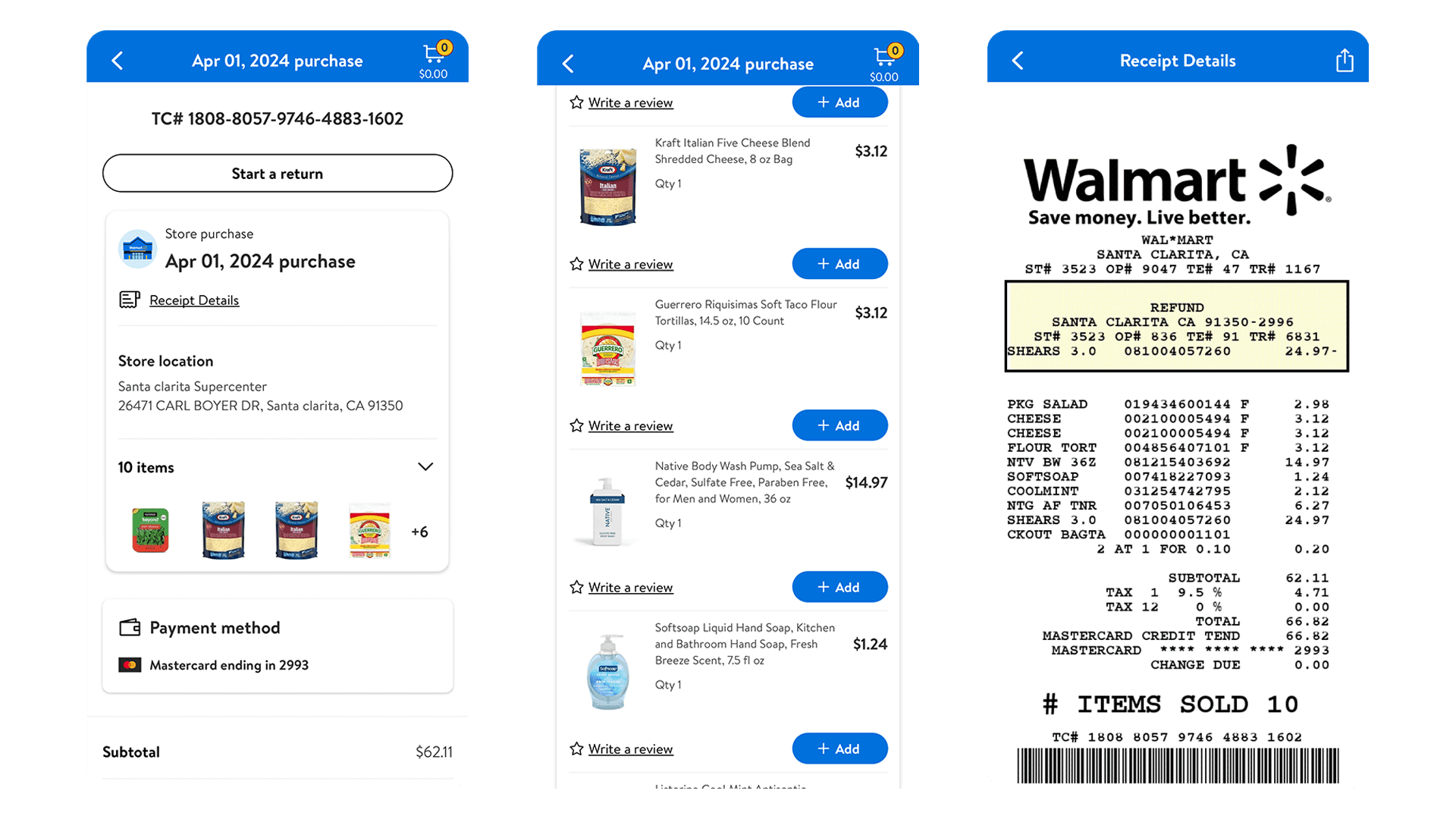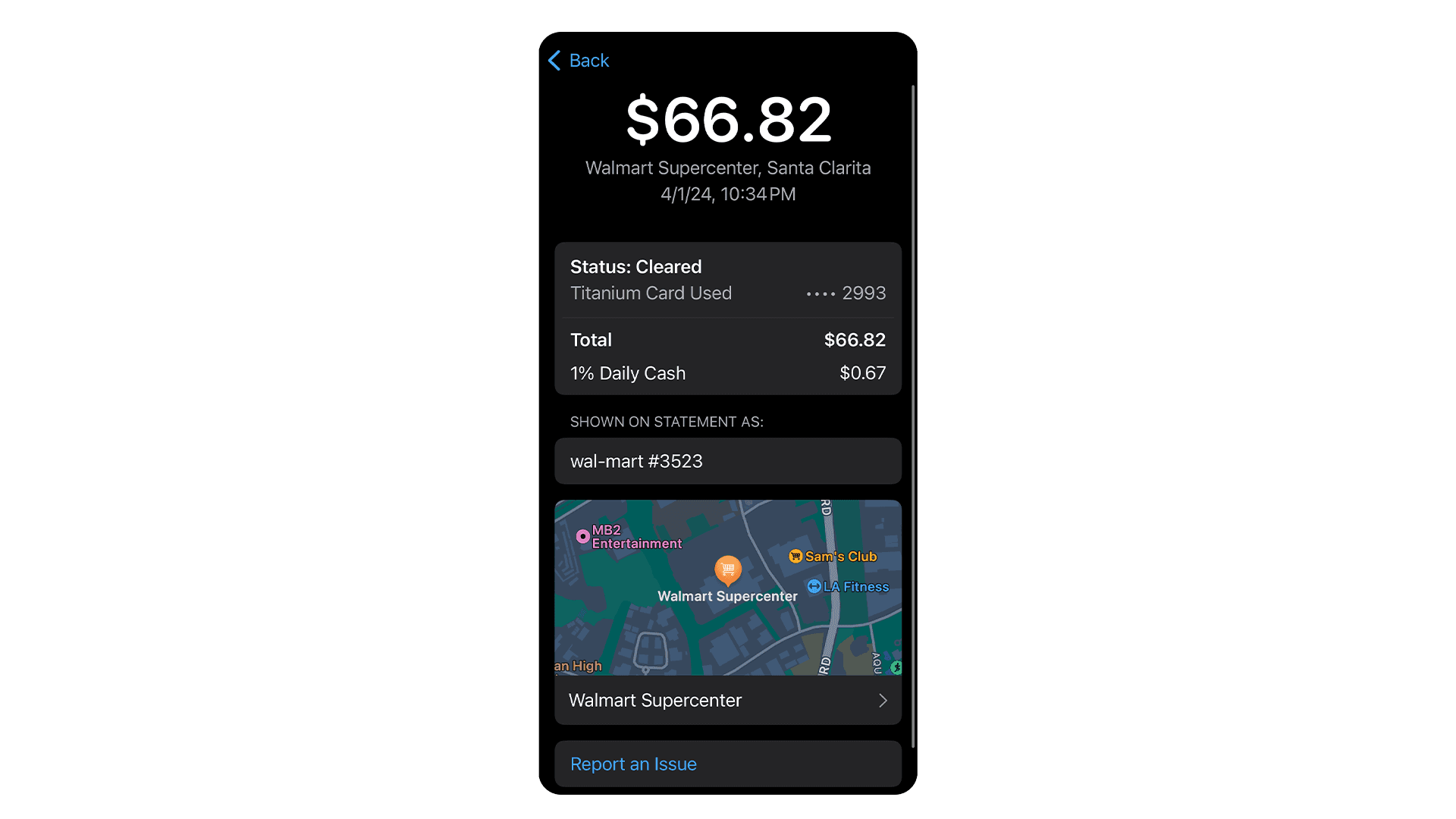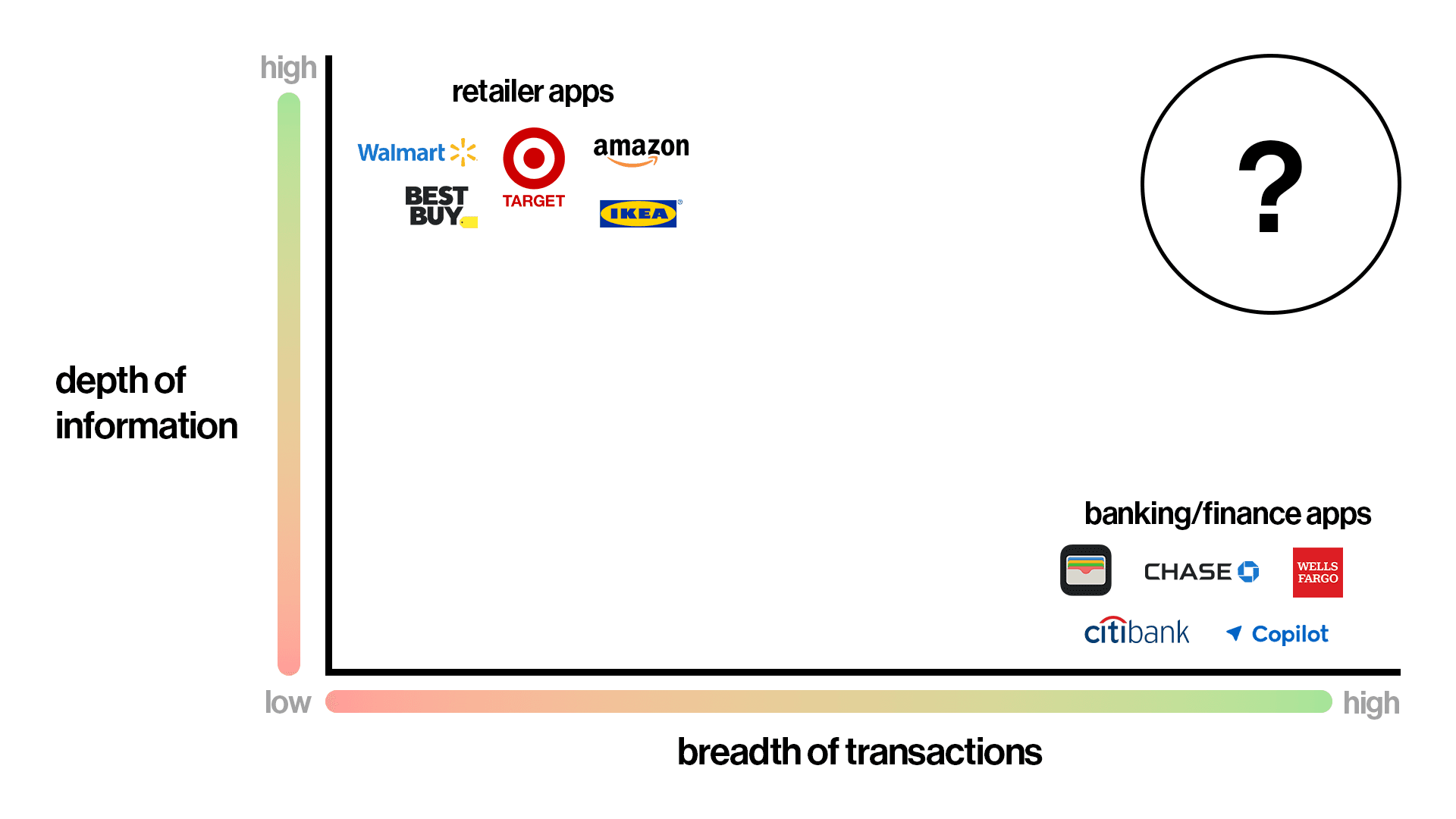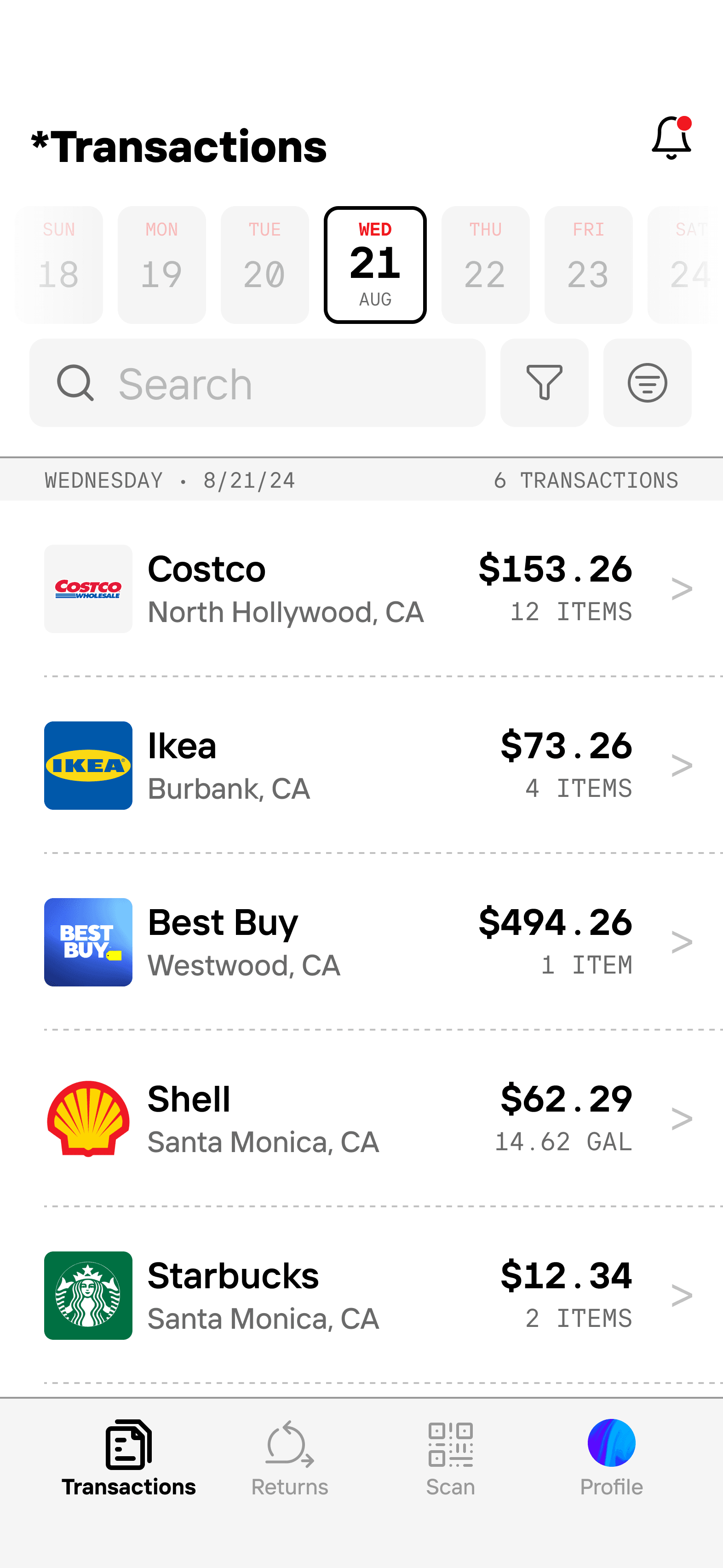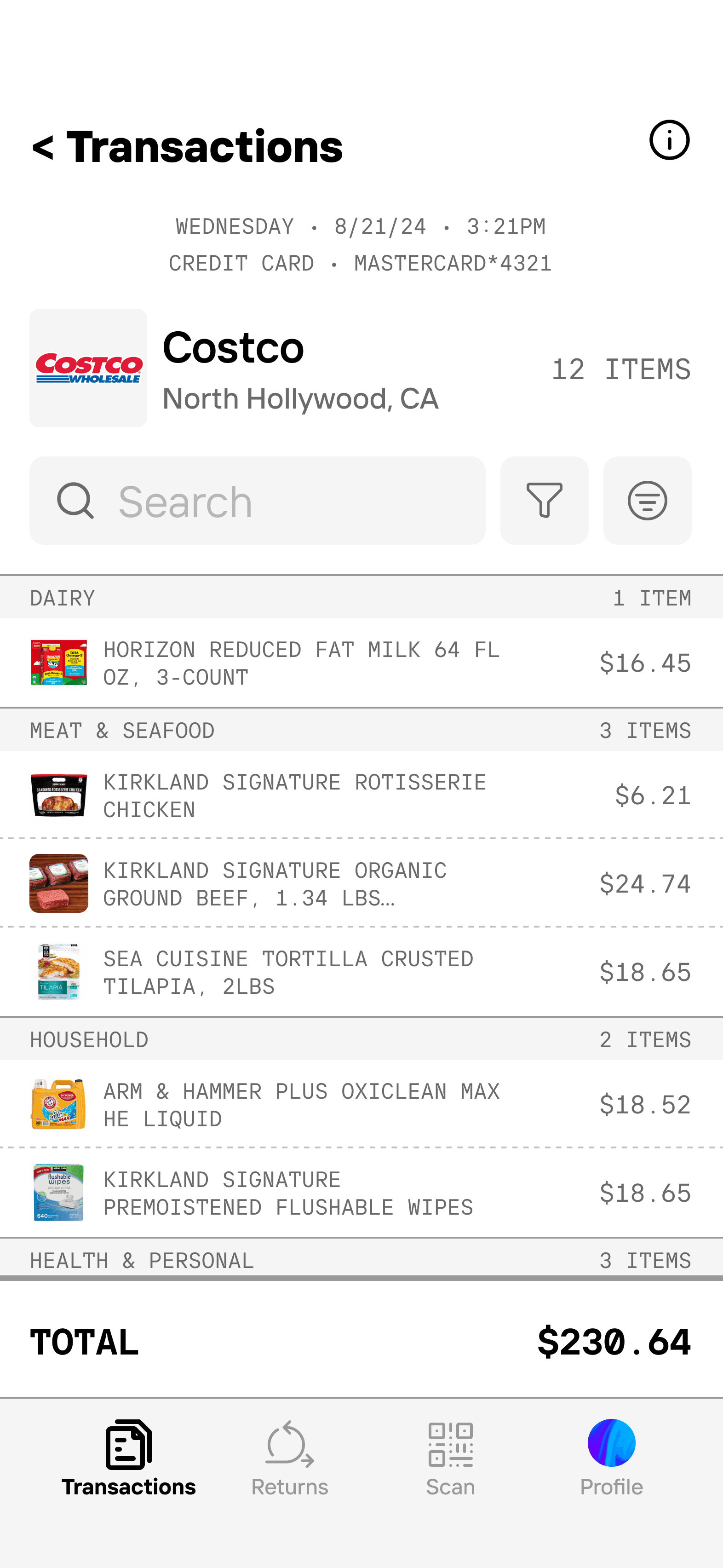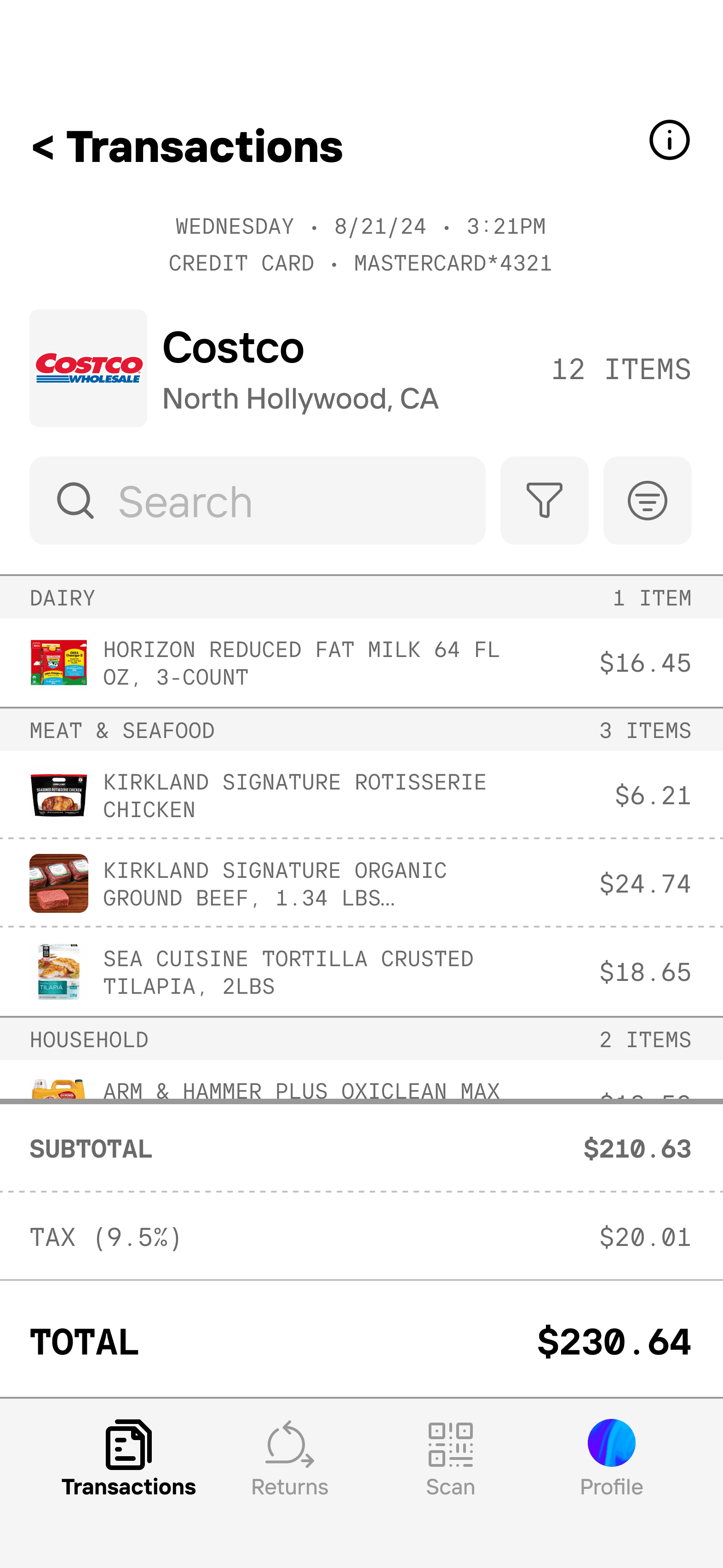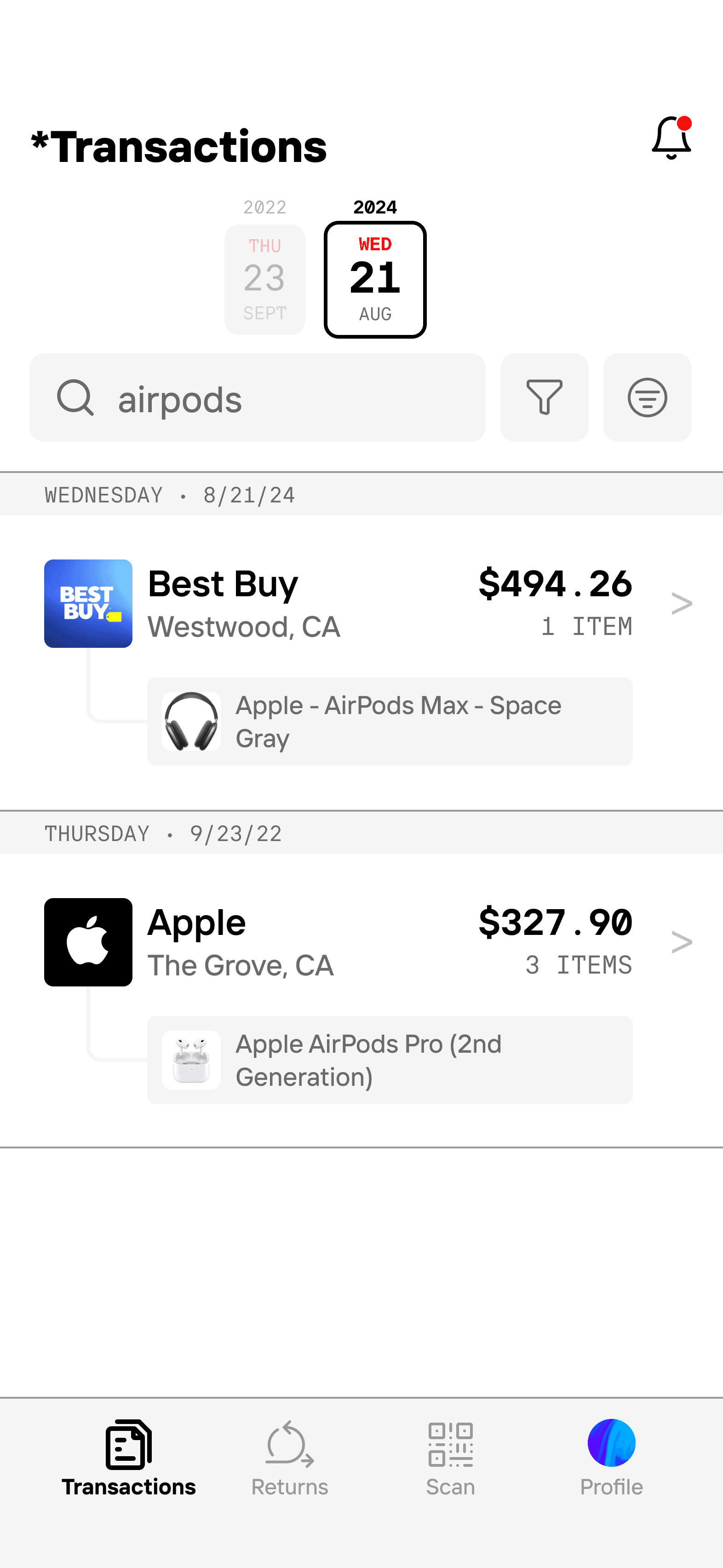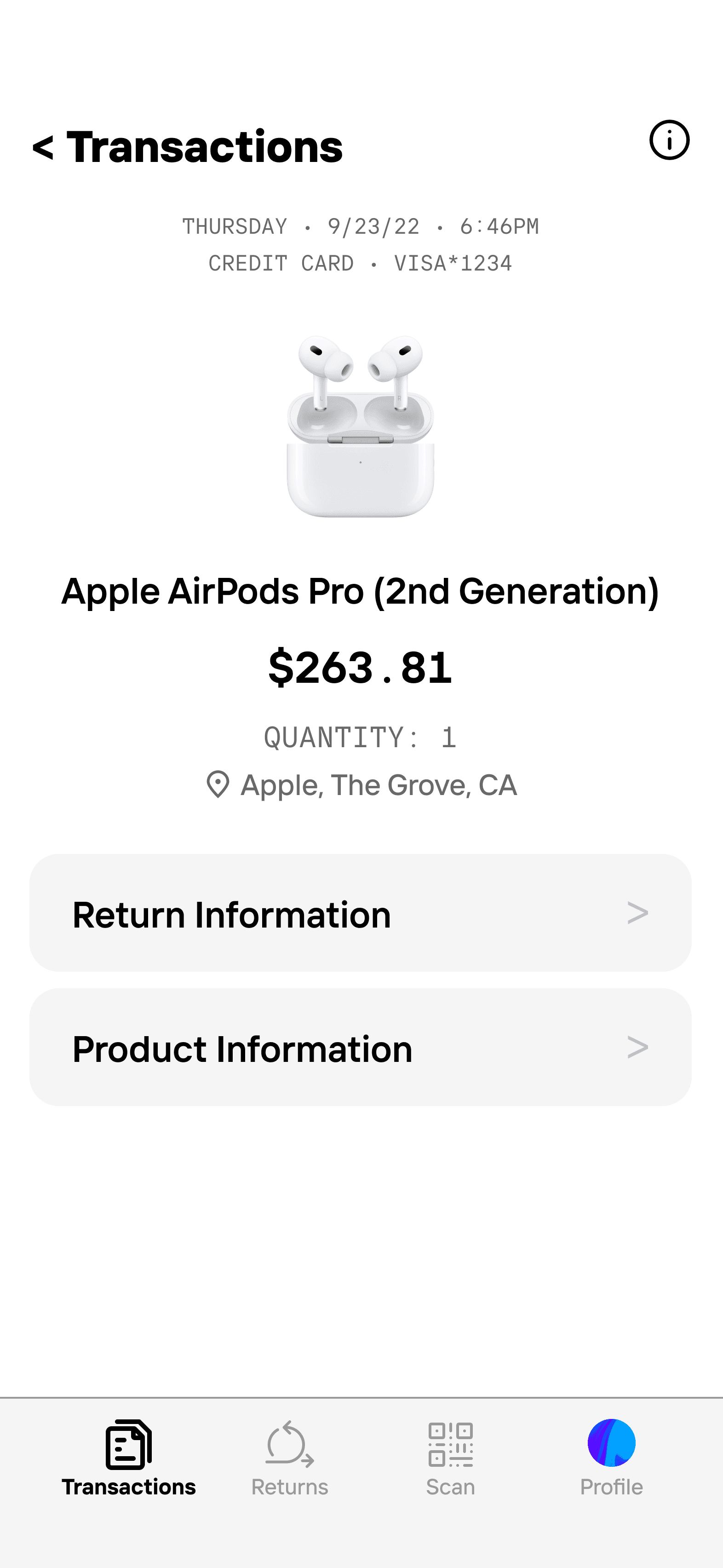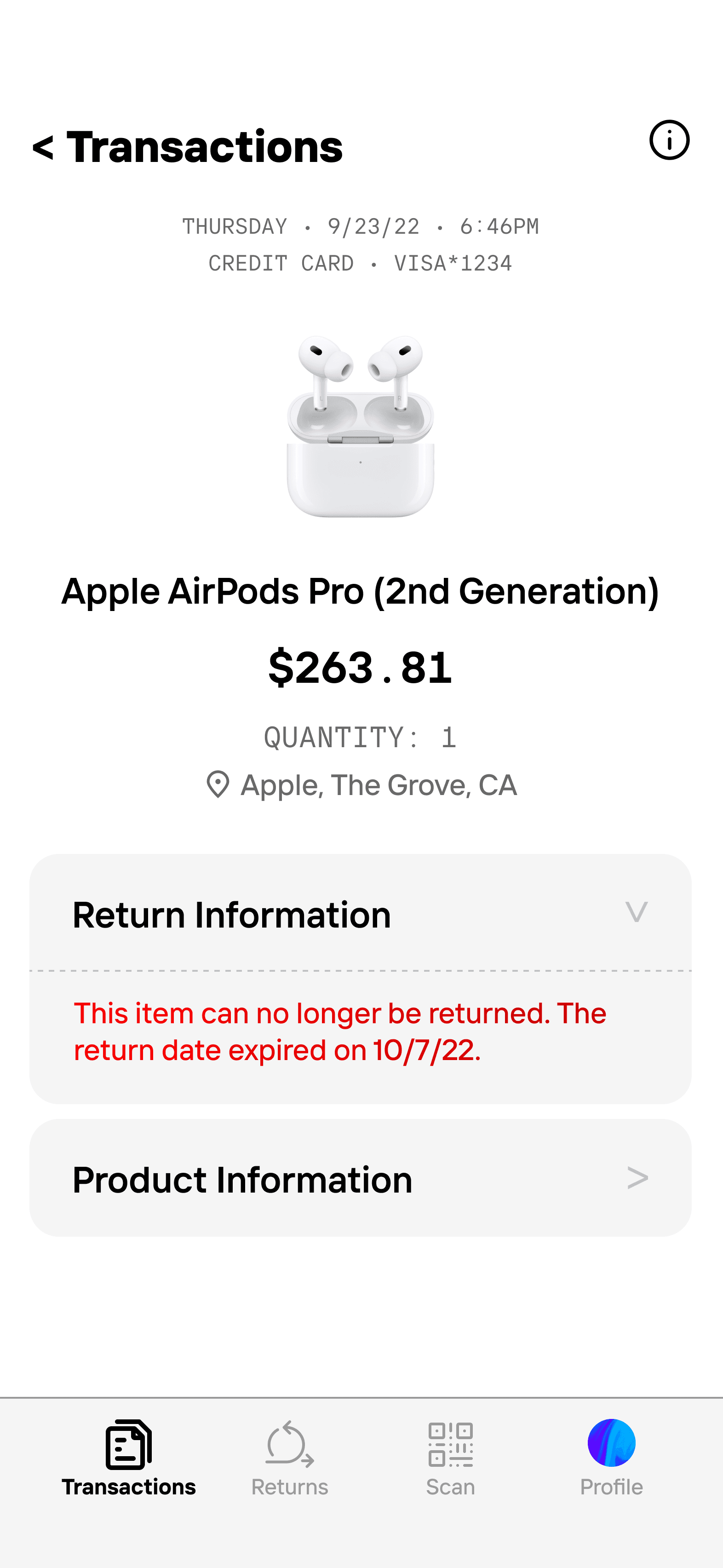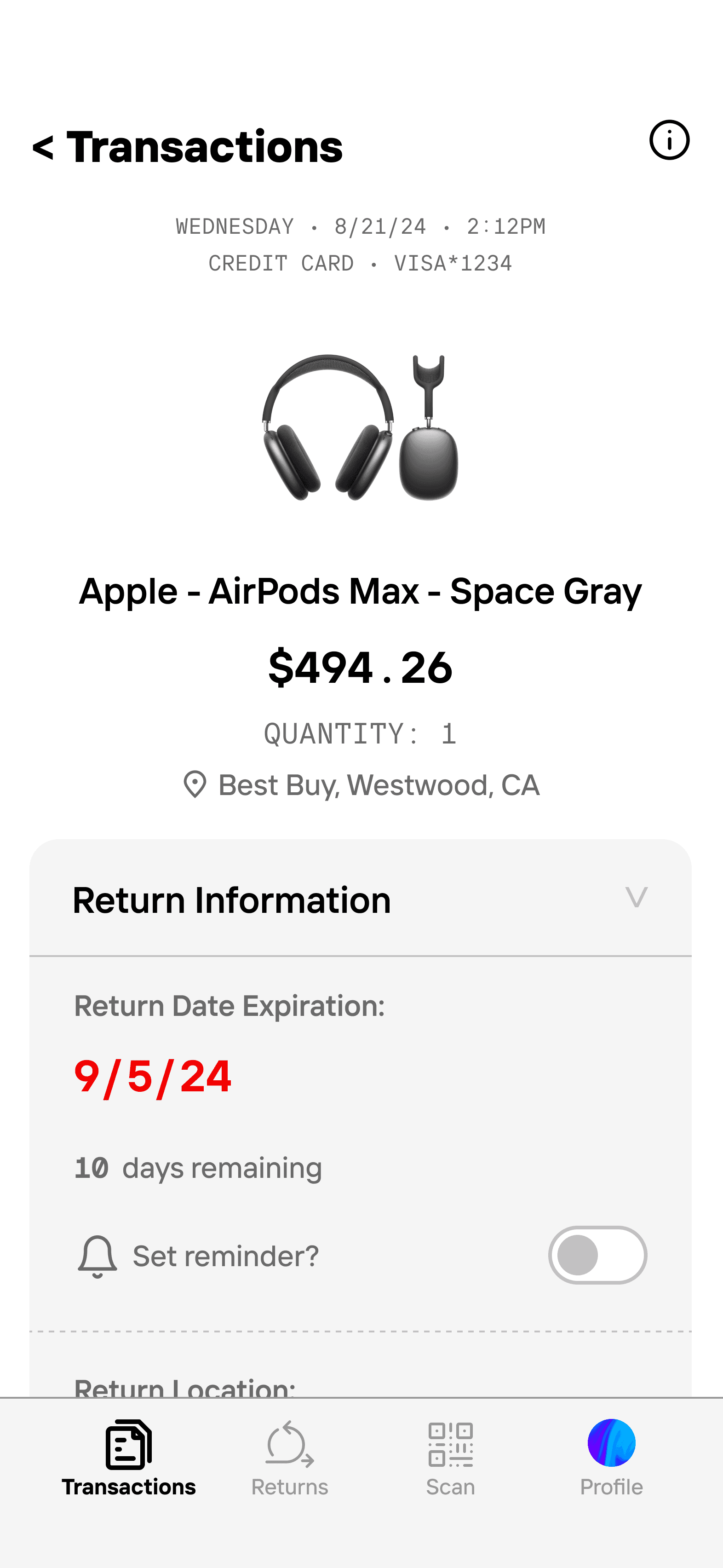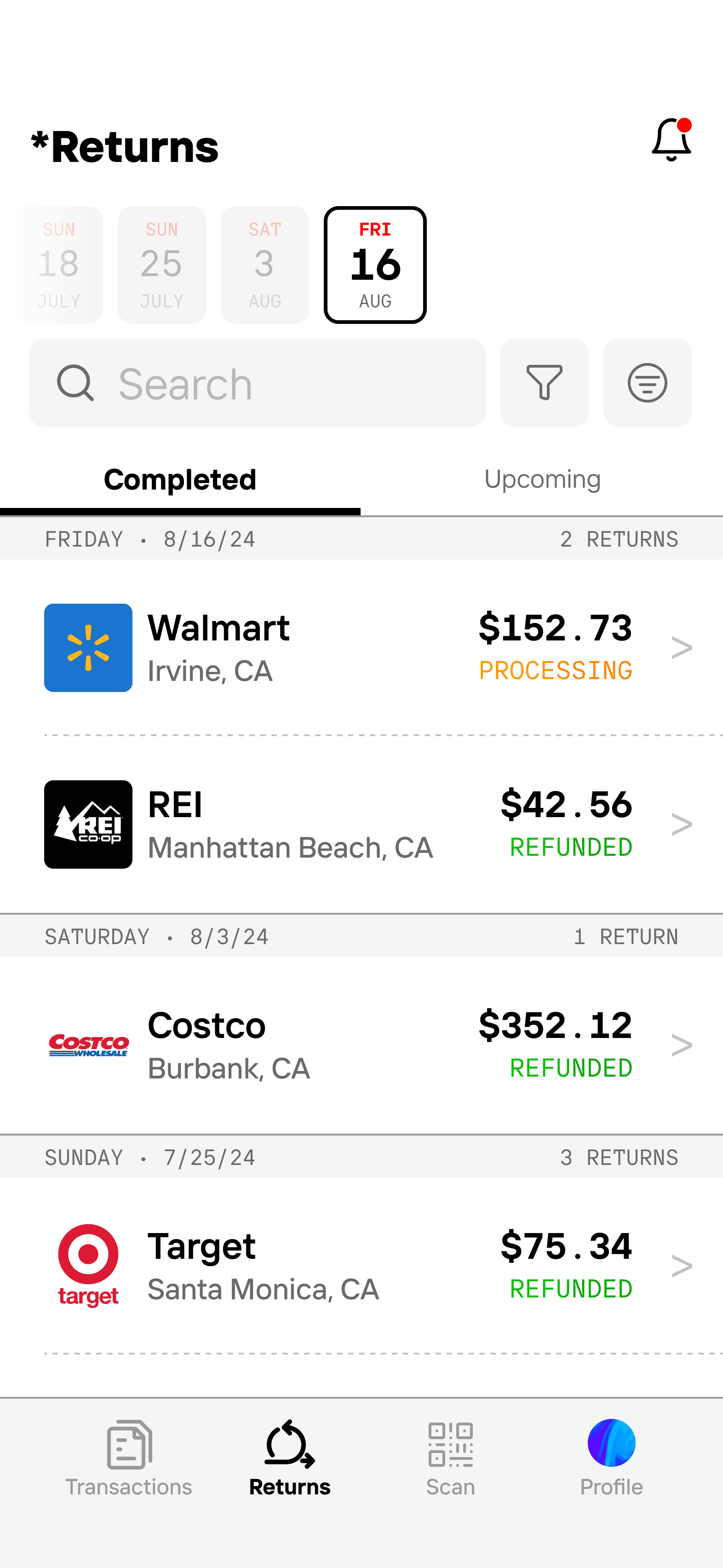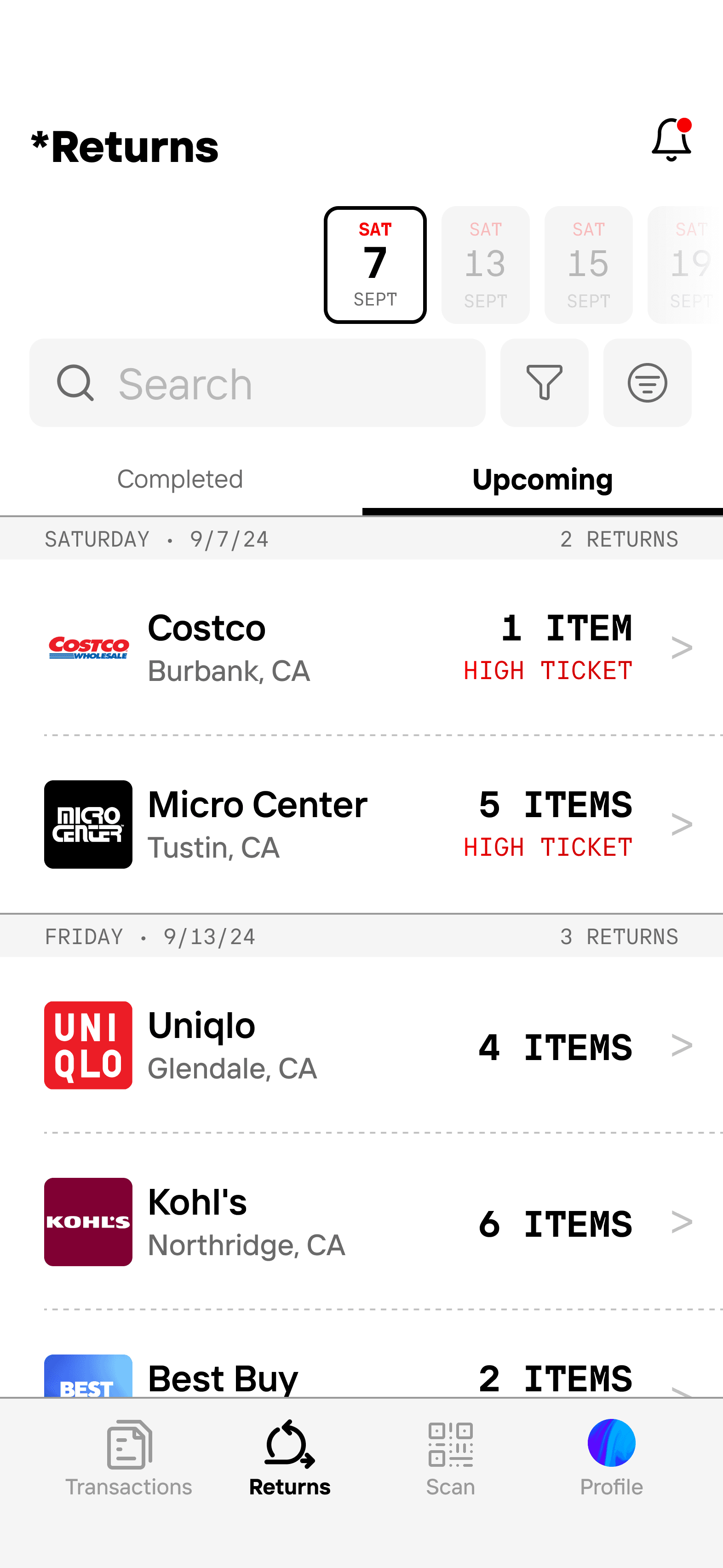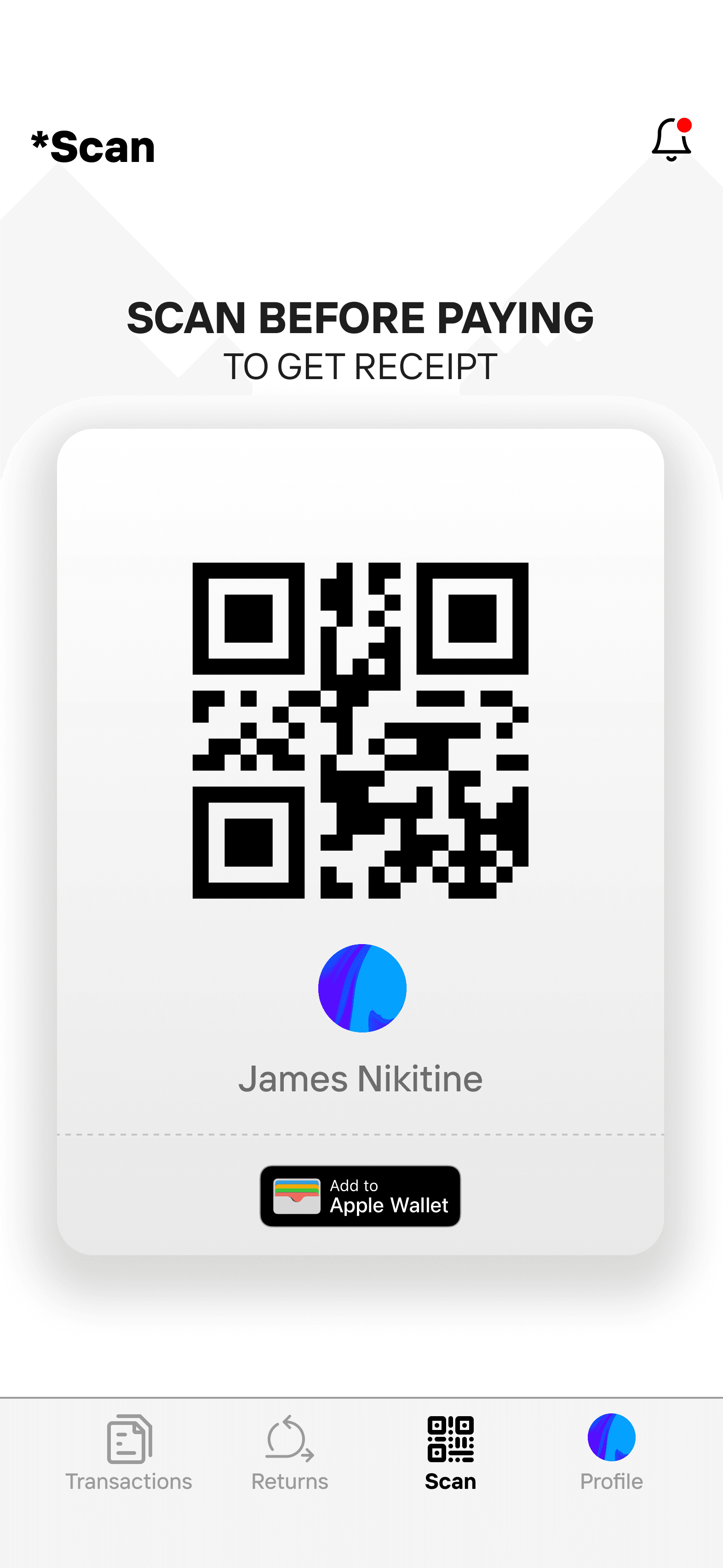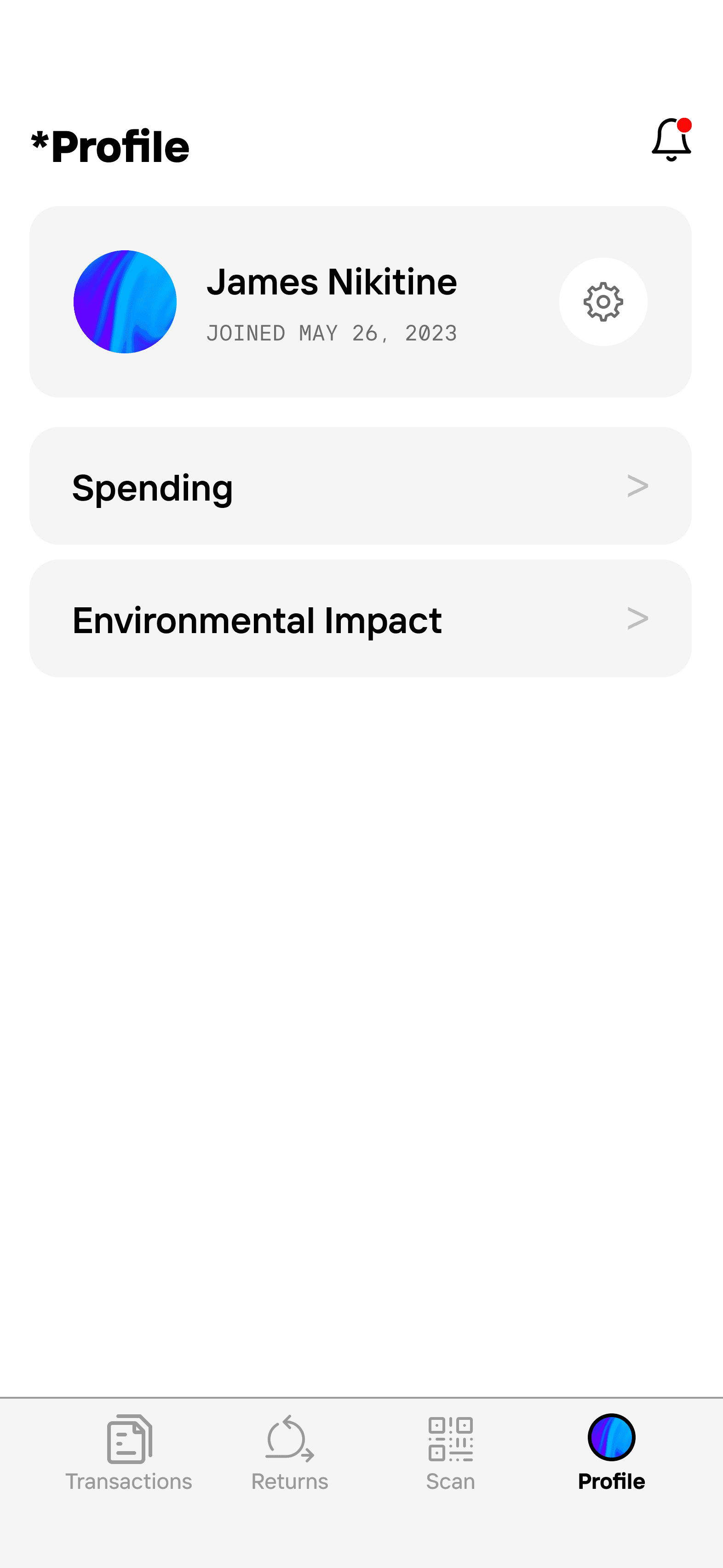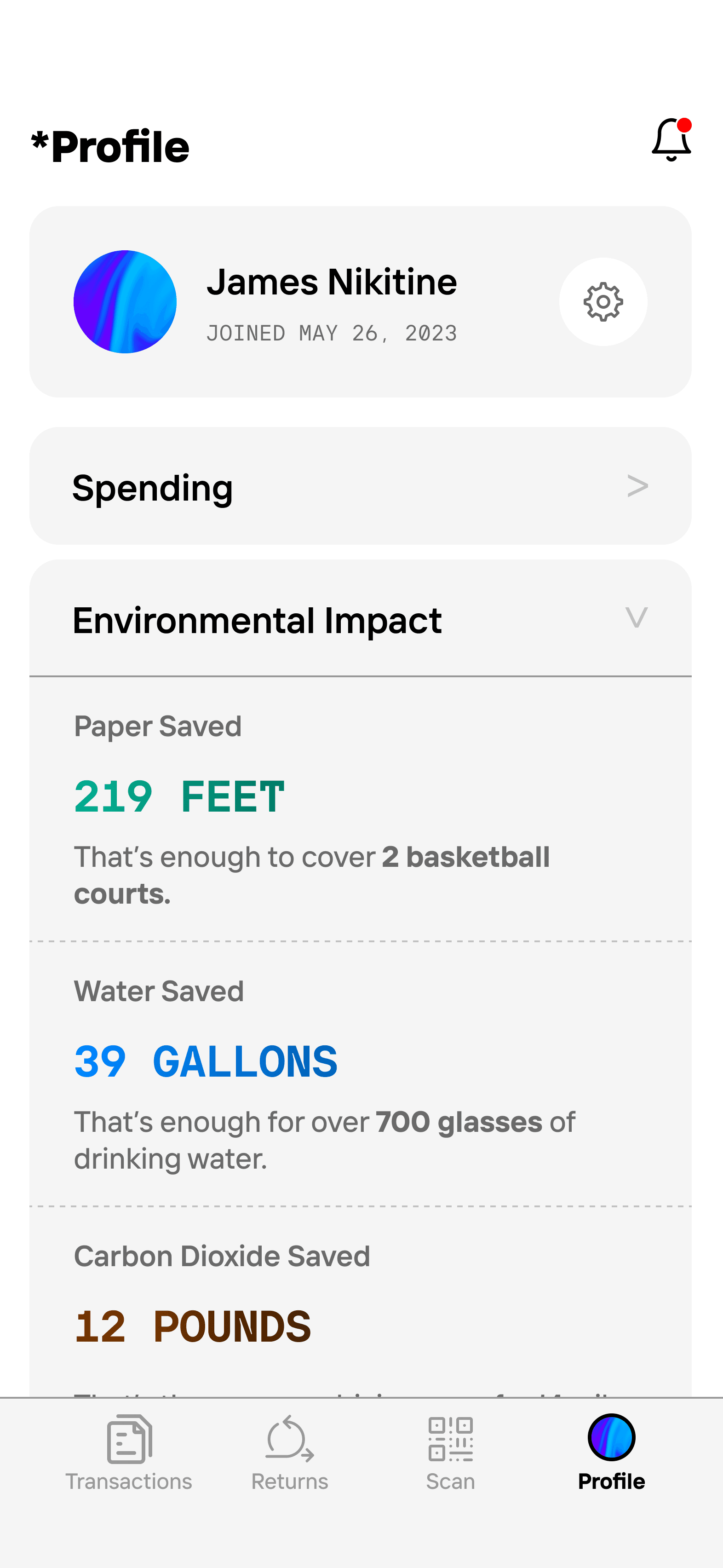Fintech
A look into what a world without paper receipts might look like.
Introduction
As someone who's diving into the world of product design, I wanted my first project to be about something I genuinely wish existed rather than doing just another random redesign. Thankfully, I do keep a note file on my phone tracking down all my frustrations, whether it be with products, services, buildings, etc. Going through my list, there were a myriad of topics I could have chosen from, but there was always one at the top of my mind: paper receipts.
Paper receipts stand out to me like a novelty in our modern world. Being inquired by the cashier if I want a receipt, hearing the printer at work, the sound of the paper being ripped apart from the roll, feeling the warmth on my skin, folding it up and stuffing it somewhere to be forgotten about; it is archaic.
However, they do serve an important purpose! Our world and economies rely on thousands and millions and transactions, and receipts are how we can validate that transactions have actually taken place.
Even the Mesopotamians knew the value of receipts over 5000 years ago!
Apart from my own frustrations, I observed two specific instances in my own life that cemented my conviction of trying to imagine a solution to this problem.
First, my dad asked me one day if I could help tidy up his car after he had gone on a long trip for work. I said of course and started cleaning until I noticed the sad collection of stuffed receipts in one of the compartments in the center console. Keep in mind that this was within the time range I was still ideating what to do for this project, so it hit me like a ton of bricks as soon as I saw it.
Second, my parents like to track their finances quite diligently. However, the difference with them is that they don't use any apps or sites to do so. Instead, at the end of every month, my mom will sit down with a giant stack of receipts for the month (or several months if she put it off) and enter everything into a spreadsheet they created. The reason for this is because it allows them to be much more specific and intentional with how they categorize everything. You might say that it's such a tedious task, and you'd be right; my parents agree too. I credit my mom's annoyance with the whole process as the seed for my recognition of this problem.
Research
At last; I had my work cut out for me. Now, I absolutely knew that I had my own frustrations and experiences with paper receipts, but that was it. I had a range of questions like whether other people felt the same way, had there been an attempt at replacing physical receipts, and what is the general consensus on receipts? Here were the main takeaways from my basic research through Google and conversations around town.
Personal Health Impacts
To my surprise, there have actually been a lot of efforts through various organizations to reduce the use of paper receipts due to their climate and health impacts.
The most common form of paper receipt that we all know uses a unique printing technique known as thermal printing. Rather than using ink, the printer uses heat to print out all the information it needs. This is great for a receipt use case as it eliminates the need to constantly swap out ink cartridges, but the controversy comes from the chemicals that enable this thermal printing process.
The rolls of paper used in thermal printing, known as thermal paper, contain two chemicals known as BPA (Bisphenol-A) and BPS (Bisphenol-S). These two chemicals are essential for the thermal printing process, but unfortunately they have a lot of drawbacks.
It is well established that BPA is an endocrine disrupting chemical, having negative effects such as “cardiovascular disease, obesity, diabetes, ADHD, male sexual dysfunction and others”. It is for this reason that the EU has completely banned the use of BPA in thermal paper since 2020. Contact with paper receipts is said to be one of, if not the biggest, contributor to human absorption of these chemicals.
Just to take a quick break from all the facts, learning this fact alone was shocking and even a bit maddening for me. My mind started racing through all the times I remember seeing my mother handling receipts for hours on end without the use of any gloves or protection. How much of these chemicals had she absorbed into her body over the years? Was this the reason for the some of the health scares she's had? This doesn't even account for those who work in retail stores who handle even more receipts.
A diagram showing the path of BPA absorption from contact with receipts.
Who Needs to Recycle?
If you haven't already turned against paper receipts, here's another fact: paper receipts are not recyclable. Those same two chemicals are the sole reason why paper receipts cannot be properly recycled. BPA and BPS cannot be separated from the paper, thus it is recommended that they just be thrown in the trash.
While working on this project, I asked various cashiers at different stores about what they did with receipts. The overwhelming majority stated that no matter what the customer says, the receipt automatically prints. If the customer doesn't want it, then they just put the receipt in the trash. I don't even want to attempt to do the math, but I think we can imagine just how much waste that produces in one day across all the stores in the United States, let alone around the world.
Consumption and Emissions
Let's put the nail in the coffin, shall we?
I would highly recommend going through the report provided by Green America as it goes into even deeper analysis of consumption, waste production, and more.
Consumer Preferences and Survey
I think we've established that paper receipts aren't exactly the greatest things in the world. However, what do consumers think? Luckily, I found a survey that was a treasure trove of information and data for this project.
Censuswide ran a survey of 1,011 people in the United States in July of 2019 asking specifically about receipt preferences, feelings, etc. Here are the main points:
42% prefer paper receipts, while 34% prefer both paper and digital.
70% of digital receipt users prefer them for environmental benefits and ease of storage.
64% of paper receipt users prefer them for security reasons.
Respondents lose an average of 52% of paper receipts.
89% of respondents want retailers to offer digital receipts.
My personal takeaways from the data were the following:
Younger demographics prefer paper receipts, this will most likely cause growing demand over the years as technologically-literate generations like Gen Z and Gen Alpha age.
There is still some hesitation in the reliance/security of digital platforms and mediums from older generations.
Most importantly, there is a vast majority consensus that digital receipts should be offered.
Online Sentiment and Discussion
With all my criticisms and grievances with social media, I still find it amazing that I can just go and see what random people are talking about and how they feel, no matter how niche the topic. Paper receipts were no different. Below are some screenshots of posts I found online regarding paper receipts:
One of the posts I found on TikTok with a good amount of engagement.
A post made to r/ZeroWaste questioning the use of paper receipts.
From my quick time on TikTok, it seems like awareness around the chemicals on thermal paper originated and swirled around in the fitness/health community, more specifically with "gymbros". There was a lot of talk and mention around how these chemicals can cause estrogen production, limit testosterone, etc. This makes sense considering TikTok's userbase skews younger.
On the other hand, the discussion on Reddit was much more mature and focused much on the waste aspect. The post was made to a subreddit called r/ZeroWaste which is focused around trying to reduce waste in one's everyday life. It was reassuring not only to see people talk about much of the same issues and concerns I feel with receipts, but to see someone mention the solution I was thinking of! (teaser)
Market and Competitor Analysis
Walled Gardens and the Missing Link
The use of digital receipts is already present, but its current implementation is a sight for sore eyes. The worst version I've seen out in the world is being asked to enter in your email address to get a digital version of the receipt. The process is horrible as you have to either enter it in on a usually tiny point-of-sale system or have an awkward conversation with the cashier about how to spell out your email. The other implementation is retailer-specific apps that stay within their own walls. Retailers like Walmart, Amazon, and Target offer purchase history and receipts on their respective platforms, but that's it! It is horrible user experience to expect every customer to download each retailers app just for the ability to maintain a digital transaction record.
However, you may be asking, "What about financial tracking apps or my personal banking app? I have all my transactions right there!" Well, technically you'd be correct but those apps are extremely limited in the depth of information for each transaction.
For example, let's take this purchase I did at Walmart a few months ago. Using the Walmart app, I have a great view of all the information I need from that transaction like what store I went to, the date, card used, and a very useful list of items purchased along with their images! Unfortunately, it's all locked to the Walmart app.
Now let's look at that same transaction, but now in Apple wallet as I used my Apple credit card for the purchase.
Yikes… pretty disappointing. I can't see what items I bought, I can't categorize items specifically how I want, I can't see how much was added on in taxes, and it doesn't even state that an item was returned from that transaction. All banking and financial tracking apps suffer from the same issue: they cannot access more information about a transaction.
The problem is now clear; on one side we have apps that are deep in the information they provide about a transaction, but very narrow in the types of transactions are shown. On the other hand, we have apps that cast an extremely wide net and show basically all transactions, but at the same time are extremely shallow in the information provided for those transactions. Something is missing…
Final Screens
Note: if you're seeing this, that means I'm still working on finishing the final part of the case study. Deadlines for some internships I'm applying to are coming up quick so I'd like to get my final screens out there.
